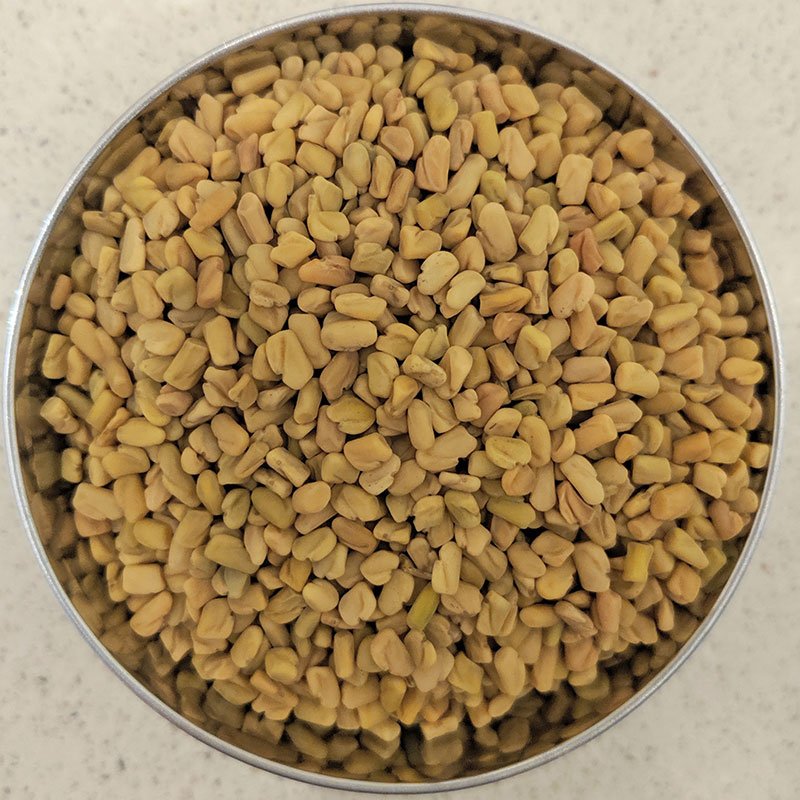When it comes to natural supplements aimed at boosting testosterone levels, fenugreek is often mentioned as a potential option. If you’re looking to enhance your athletic performance, increase muscle mass, or simply improve your overall vitality, you may have considered fenugreek. But does it really work? This blog post will explore the science behind fenugreek and its possible impact on testosterone levels, helping you make an informed decision.
What Is Fenugreek?
Fenugreek is a herb native to the Mediterranean, southern Europe, and western Asia. Known for its slightly bitter taste and maple syrup-like aroma, it has been used in traditional medicine for centuries. Fenugreek seeds are particularly rich in compounds such as saponins, flavonoids, and alkaloids, which are believed to provide various health benefits, including potential hormonal effects.
The Science Behind Fenugreek and Testosterone
The primary question many have is whether fenugreek can genuinely increase testosterone levels. Several studies have been conducted to explore this, with mixed results.
Positive Studies
Some research suggests that fenugreek may indeed have a positive effect on testosterone levels. For instance:
- A 2011 Study: Published in the journal Phytotherapy Research, this study involved 49 resistance-trained men who consumed 500 mg of fenugreek extract daily for eight weeks. The results showed a significant increase in both free and total testosterone compared to the placebo group.
- A 2016 Study: This study, published in the journal Aging Male, involved 60 healthy men aged between 25 and 52. The participants took 600 mg of fenugreek extract daily for 12 weeks. The researchers found a noticeable increase in testosterone levels and improved sexual function.
Why Fenugreek May Work
The active compounds in fenugreek, such as furostanolic saponins, are believed to stimulate the release of luteinizing hormone (LH). LH is crucial because it signals the testes to produce more testosterone. Additionally, fenugreek may inhibit the enzymes that convert testosterone into estrogen, thereby maintaining higher testosterone levels.
The Other Side of the Coin
While some studies show promising results, others suggest that fenugreek’s impact on testosterone may not be as potent or consistent as claimed.
- A 2020 Study: Conducted by the International Journal of Medical Sciences, this research involved 60 men taking fenugreek extract over a period of 12 weeks. Unlike previous studies, the results showed no significant changes in testosterone levels, though the participants did report improved sexual performance and libido.
- Placebo Effect: Some experts argue that the perceived benefits of fenugreek might be due to the placebo effect rather than any real physiological changes.
Additional Benefits of Fenugreek
Even if the testosterone-boosting effects of fenugreek are still up for debate, it offers several other health benefits:
- Improved Libido: Many users report enhanced sexual drive and performance, possibly due to fenugreek’s impact on hormone balance.
- Better Blood Sugar Control: Fenugreek is known to help regulate blood sugar levels, making it a popular supplement for people with diabetes.
- Increased Muscle Mass: Some studies suggest that fenugreek may help in increasing muscle mass and reducing body fat, possibly due to its effects on testosterone and insulin sensitivity.
How to Use Fenugreek for Testosterone
If you’re interested in trying fenugreek, here’s how to get started:
- Dosage: Most studies used doses ranging from 500 mg to 600 mg of fenugreek extract daily.
- Form: Fenugreek is available in various forms, including capsules, powders, and teas. Capsules are often the most convenient option.
- Timing: To optimize its potential effects, consider taking fenugreek with meals, as this can improve absorption.
Final Thoughts: Is Fenugreek Right for You?
While fenugreek shows potential as a natural testosterone booster, the evidence is still not conclusive
Whether you’re looking to enhance your workouts, boost your libido, or improve overall vitality, fenugreek might be worth considering. But like any supplement, it’s not a magic bullet—results can vary, and it works best when combined with a healthy lifestyle.
Disclaimer: The information provided on this blog is for general informational purposes only and is not intended as medical advice. Always consult with a qualified healthcare professional before making any decisions regarding your health or starting any new treatments. The content here should not be used to diagnose, treat, or prevent any medical condition. Additionally, please note that this blog is reader-supported. If you click on an affiliate link or advertisement and make a purchase, we may receive a commission at no extra cost to you. This helps us maintain the site and continue providing valuable content.




